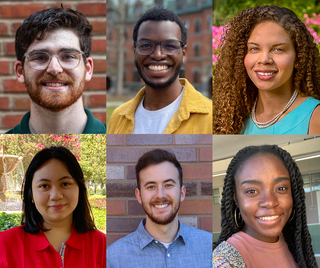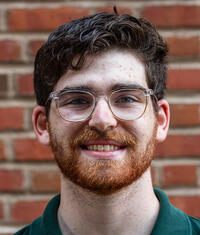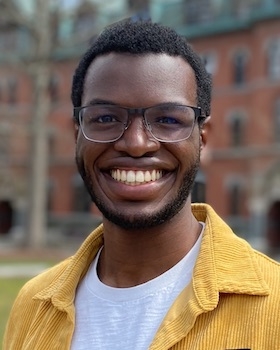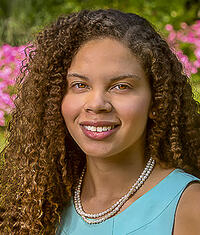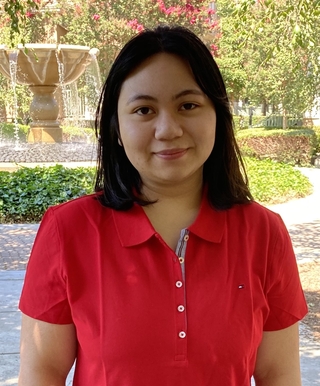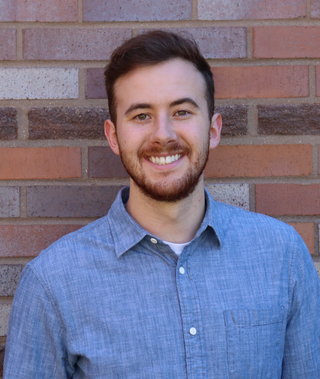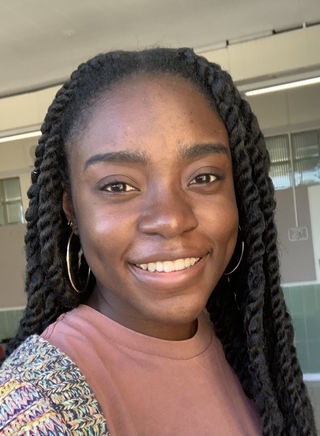An overwhelming sense of gratitude is the common thread woven through each story of the six Yale Chemistry 2022 National Science Foundation (NSF) Fellows. As one of the country’s most-sought-after graduate research fellowships, few who apply receive the award, which provides students with a yearly $34,000 stipend for three years and one-time $12,000 educational allowance – what Daniel Chabeda, one of the winners, calls “an opportunity to step into freedom.”
The investment allows graduate students to pursue research that truly excites them rather than whatever a prospective PI is capable of funding. It means less time working to pay bills and more time researching to develop breakthroughs in science and engineering.
The potential for significant achievement, coupled with a passion for the promotion of STEM, is exactly why the NSF chose the six recipients from the Department of Chemistry: Noah Bartfield, a second-year Ph.D. student from the Herzon Lab, Daniel Chabeda, a fourth-year undergraduate student from the Batista Lab, Nia Harmon, a second-year Ph.D. student from the Wang Lab, Jenna Molas, a second-year Ph.D. student from the Ellman Lab, Tyler Myers, a second-year Ph.D. student from the Miller Group, and Natalie Williams, a second-year Ph.D. student from the Cha Research Group (Department of Engineering and Materials Science).
Competition was fierce. They were judged not only on their potential to better humanity through their science, but also on their efforts to better science by expanding its reach to those who otherwise would not have access. In their applications, they demonstrated their capacity to conduct groundbreaking research, a plan to perform novel research with the potential to bridge knowledge gaps and further science, and their commitment to breaking down barriers for those entering STEM fields.
Their award-winning research proposals will address some of the most urgent issues of our time, such as sustaining a hydrogen fuel economy, discovering and developing new medicines to treat cancers and other diseases, converting pollutants to useful products, harvesting energy for other purposes, and more.
“The application has a personal component as well,” said Harmon. “So, it’s not just ‘are you a good scientist? Are you able to carry out impactful work, work that has a lot of reach?’ What I think is interesting about the [fellowship] program is that it targets students who care about the future of science, giving back in terms of science, outreach, science communication, and making science more accessible.”
“It is an honor to receive [the award],” said Molas. “To me, it means a lot because I had spent a lot of time doing outreach, starting from high school to undergrad and continuing until now. Being recognized for that sustained outreach verifies how important that value is to the scientific community.”
They even mentioned what drives their passion for research. Chabeda said, “Faith has been a big part of my scientific journey. It’s like God has hidden mysteries in the universe, and we get the exhilarating experience of uncovering them.”
Not only did the students mention how grateful they are to have received the award and support from their lab mates and PIs, they also recognized the phenomenal applications of their peers, who they said were just as deserving of the award.
The following Chemistry student applicants received honorable mentions from the NSF: Rachel Cantrell, Mathew Chow, Jamie Cleron, Juan Serviano, Ume Tahir, and Linda Zuckerman.
